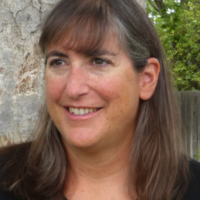
Roberta Millstein (UC Davis)
Préinscription requise | Registration required: ely.mermans@umontreal.ca
Dans le cadre des conférences du GRÉEA, Roberta Millstein (UC Davis) nous offrira une présentation intitulée « Thinking about Aldo Leopold’s Land Ethic: Conceptual and Ethical Issues ».
Résumé
This talk will provide an overview of my work-in-progress, a new interpretation and new defense of Aldo Leopold’s land ethic. Leopold was a 20th century forester, wildlife manager, ecologist, conservationist, and professor, best known for his posthumously published book A Sand County Almanac (ASCA). In ASCA, Leopold outlines the land ethic, a view that has been widely discussed by environmental ethicists as well as historians and conservation biologists (and people in related fields). However, the existing literature on the land ethic overlooks a number of important issues. The first is historical: the nature of the influence of Charles Darwin on Leopold. Indeed, a history and philosophy of biology approach toward Leopold is missing more generally – there are a number of conceptual issues that can only be understood by looking beyond ASCA to Leopold’s other writings in the context of his life experiences. These issues include addressing what Leopold meant by land community, by interdependence, and by stability and land health, all of which are essential for understanding his land ethic; they also include determining how these concepts fare in light of contemporary ecology. The clarification of these conceptual issues puts us in a position to understand the upshot of Leopold’s argument for the land ethic, a simple argument from consistency that explains why we should expand our moral community to include the land (soils, waters, plants, and animals, understood collectively). In short, we need incorporate history and philosophy of ecology and contemporary ecology in order to understand and appreciate the land ethic and Leopold’s argument for it.



